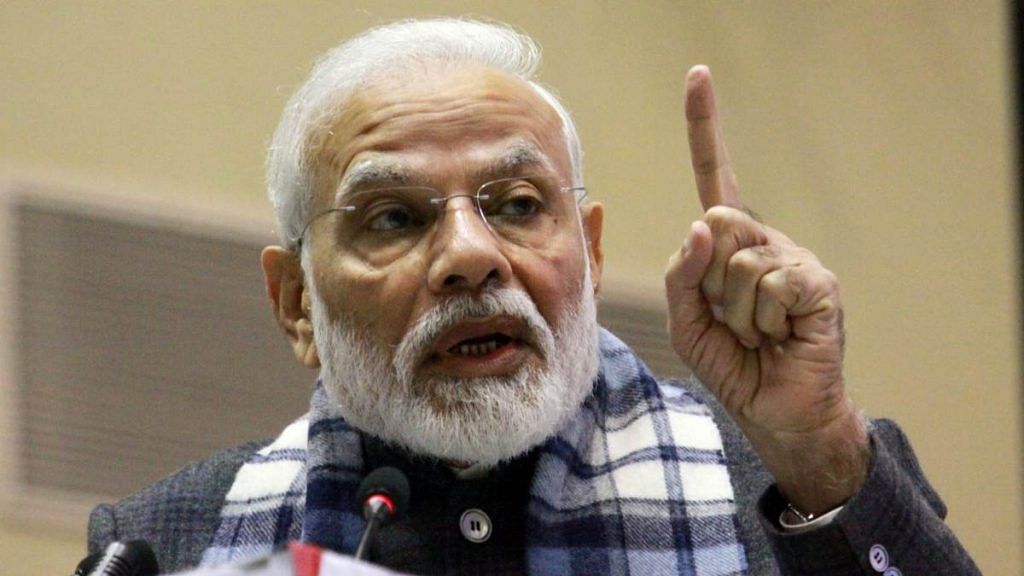The European Union Parliament is set to discuss several resolutions Wednesday on the Citizenship (Amendment) Act as well as the situation in Kashmir that has the astonishing support of 626 out of 751 members across the political spectrum. Mere days earlier, the conservative magazine, The Economist had published a scathing article charging Prime Minister Narendra Modi with “stoking divisions in the world’s largest democracy”.
India has, predictably, lashed out at the Europeans. Law minister Ravi Shankar Prasad described both CAA and Kashmir as an “internal matter” asking if “my esteemed friends in the EU parliament sought to raise questions over victimisation of Hindu girls and Sikh granthis in Pakistan? It’s time they were objective”.
Lok Sabha Speaker Om Birla wrote to his counterpart in the European Parliament saying it was “inappropriate” for one parliament to pass judgement against another.
Like commerce and industries minister Piyush Goyal, Prasad is also speaking to a home audience that exults in standing up to the White Man. Only two weeks ago Goyal was unable to resist telling one of the richest men in the world, Jeff Bezos of Amazon.com Inc that India doesn’t really need his money. This, when the economy is in a stall and growth is less than 5 per cent.
From engaging with the world on a monthly basis for the last six years, which brought Prime Minister Narendra Modi much kudos, India is now recoiling. Only recently, Modi was the toast of the world. But foreign criticism hurts much more. India’s thin skin is showing.
Also read: It’s The Economist, stupid. Indian democracy under Modi is too strong to slip on flawed index
The turning Western press
The next few weeks will be important. The Human Rights Council in Geneva will reconvene soon, and in March, China takes over as chair of the UN Security Council. Less than a fortnight ago, Beijing raised Kashmir behind closed doors at the Security Council, at least the third time in the last six months. As it sits in the chair, China is expected to raise the temperature, not lower it.
And then there’s the Western press, long considered to be the cat’s paw for Western nations trying to interfere in developing countries. Only in November 2019, an assertive external affairs minister S. Jaishankar pointed out, in response to criticism on India’s actions on Kashmir, that “my reputation is not decided by a newspaper in New York”.
But from The New York Times to The Economist, the world is beginning to paint India with the same brush.
“Alas, what has been electoral nectar for the BJP is political poison for India. By undermining the secular principles of the Constitution, Mr Modi’s latest initiatives threaten to do damage to India’s democracy that could last for decades. They are also like to lead to bloodshed,” the British magazine said last week.
If you didn’t know this quote was from The Economist, you would have thought it came from The New York Times. The collapsing of differences on the opinion pages of international press has happened in Modi’s second tenure, in a short span of eight months.
Also read: Economist, Soros: Has Hindu nationalism increased global criticism of India or bad economy?
Small wins
Certainly, the world has far too many problems of its own and India, even if it is slipping on the democracy index, is hardly on top of its agenda. Moreover, the European Parliament is barely more than a talk shop – India can still take heart.
The European Union’s most important members, France and Germany, are still on India’s side. France has said several times that the CAA is an internal matter for India – possibly because Paris doesn’t want to damage its burgeoning defence relationship with India, underwritten by the Rafale deal. While Chancellor Angela Merkel restricted her comments on Kashmir during her visit late last year to the situation being “not sustainable”.
Perhaps, the only bright spark this week has been the announcement that Air India, bleeding crores for years, will be sold to the highest bidder. PM Modi has clearly won this round against RSS affiliate-Swadeshi Jagran Manch, which has openly pushed against disinvestment, especially in Air India and BSNL.
Also read: The world has a message for Modi: Brand India is severely damaged
The self-harm path
But with an India-EU summit scheduled for 13 March in Brussels, European diplomats say they hope that PM Modi will take charge and take BJP MPs like Anurag Thakur to task. Thakur was caught on camera Monday calling anti-CAA protesters “traitors”.
Whether or not these statements are being made in the heat of the Delhi elections, diplomats say they are confounding the damage to India’s image as a spirited democracy that has held together in the worst of times. They believe the BJP is doing self-harm.
At the end of the day, it’s not as if world capitals have nothing better to do than wait to censure and shout against India from its rooftops. The problem is that India’s able diplomats are spending far more time fire-fighting these days than thinking up ways of how to cement relationships.
India’s image problem is growing. With it, the challenge to manage international public opinion is increasing by leaps and bounds.
